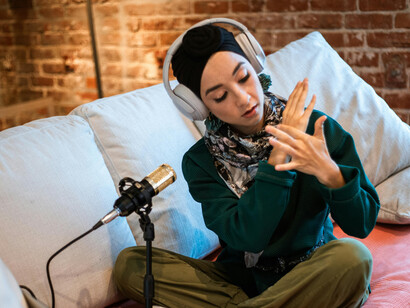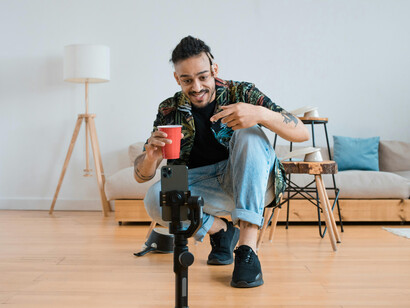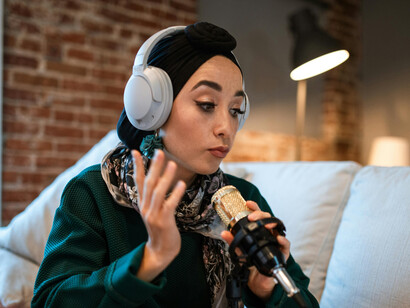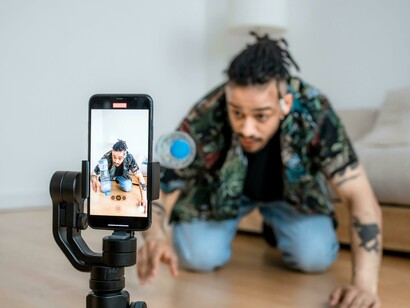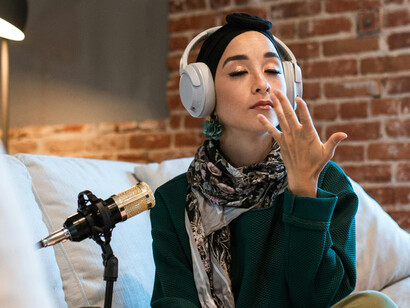The omnipresence of social media in the 21st century has meant a lot of things for us as a society. Ranging from an overwhelming accessibility to the thoughts and lives of others to changing modes of communication almost completely, its impact is undeniable.
Arguably one of the biggest developments to come out of it is the influence bestowed upon its users in a seemingly random manner. Whether it’s collecting immense viewership through posting dancing videos or gameplay streaming, individuals on social media can go from a personal account to a full-blown platform with just one well-thought-out or aptly timed post.
The arrival of new social media apps in recent years has simply meant more options for people to grow a following and make themselves and their opinions, interests, and talents accessible to the world. While it can be argued that anyone with a social media account has a platform, regardless of a follower count, smaller or private accounts don’t come close to those with millions of daily views and the influence they exert over those who keep up with their content. The somewhat random nature of who gets to go viral, however, does bring up the matter of whether everyone who has a platform really should have one.
The answer is, of course, no.
A social media platform often has the potential to grow into work beyond it—influencers have often found themselves in acting jobs and even built singing careers off the backs of a viral social media moment. In today’s artistic climate, deeply influenced by such moments, talent no longer takes precedence over virality, nor does the notion of someone having something productive to say.
While the democratization of information access brought on by the internet is generally a good thing, the consequences of platforming anyone with a well-timed 5 seconds of fame also result in the regular spread of misinformation. In some cases, this escalates to a direct abuse of the power that comes with a large following or an outright denial of having any influence whatsoever on those that follow them.
There’s an overwhelming refusal of responsibility among those who reached high follower counts and levels of influence by chance—oftentimes, they’ll feel they are exempt from commenting on significant world events or politics. The concept of using a growing platform to raise awareness for social causes is foreign to most, too, with responses to calls to action from followers often being similar to, “What do you expect me to do?” and questioning the impact their contribution could possibly have.
When compared to the way figures in the spotlight used their influence and platform only a few decades ago, today’s social media influencers fall extremely short. There’s a deep-seated desire to be seen, admired, and profitable, and very little need to handle the responsibility that comes with it, resulting in a wave of spotlights falling on shallow people unenthusiastic towards anything but profiting off of their current and temporary visibility.
As this desire and its manifestations become more widespread, the lack of credit among those who manage to achieve this somewhat celebrity status becomes inevitably more apparent. It’s an inflation of attention and clout—it has become so widespread to have a bigger following or to be an influencer or content creator that it no longer means very much at all. With literally millions of social media influencers online in 2025, having a large following is becoming just another job: an easy one that comes with many perks, but just a job nonetheless.
However, the spotlight, the brand deals, and the newness of it all are all bound to fade when there is no substance behind the platform. While the pandemic provided the most fertile ground for people to gain followings while everyone was stuck inside scrolling on social media apps, many individuals who did so have already faded into oblivion, but despite this, the notion of an influencer is far from gone.
Instead, there is still a demand for social media influencers as a means of brand advertising, but with a focus on micro- and nano-influencers, promoting the idea of authenticity and a more personalized approach rather than simply partnering for big numbers. There has been a recent shift in brands prioritizing an advertising approach based on trust rather than outreach and quality of customer relationships over the quantity of customers acquired, but what happens when the micro-influencers gain a massive following and become just like the rest?
Ultimately, a world in which everyone has a platform, deserving or not, is one that’s stuck in a vicious cycle of vying for attention as a kind of temporary high, fated to lose its current value as time goes on and more people reach influencer status. As follower counts everywhere grow, high numbers are beginning to mean less, and answering, “Influencer,” to the question of, “What do you do?” is no longer as awe-inducing as it was 5 years ago. At the end of the day, if everybody has social media influence, does anyone?
Sources
Storybox. (n.d.). Number of influencers statistics: The most recent figures.
Scott Social Marketing. (n.d.). Is influencer marketing dying? Scott Social Marketing.



